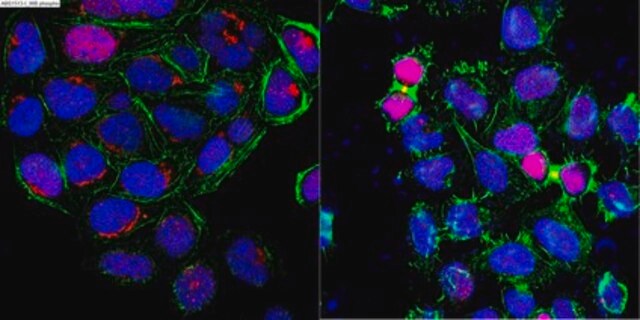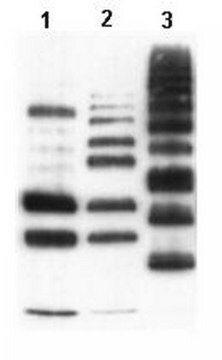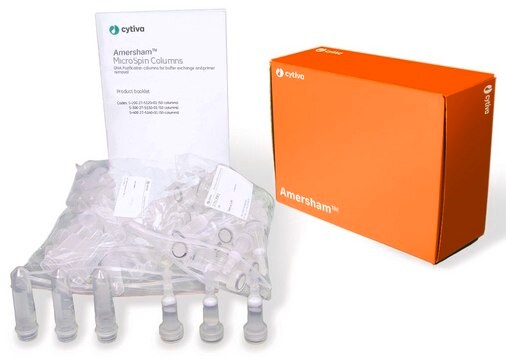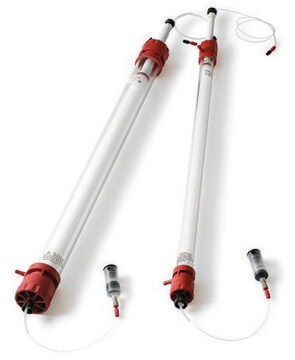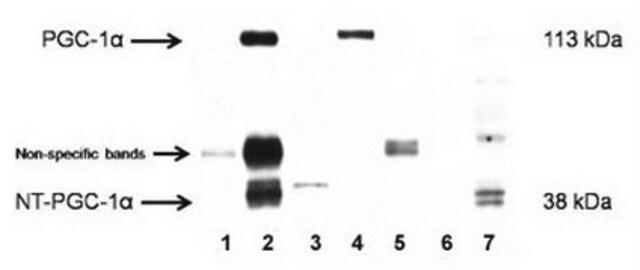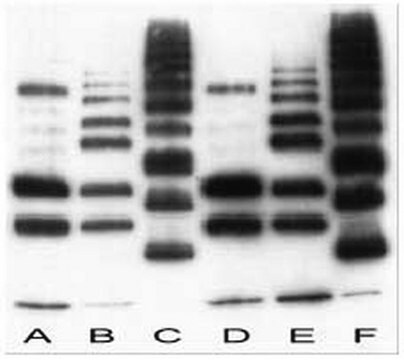07-2130
Anti-Ubiquitin Antibody
from rabbit
Sinonimo/i:
Polyubiquitin-C, Ubiquitin
About This Item
Prodotti consigliati
Origine biologica
rabbit
Livello qualitativo
Tipo di anticorpo
primary antibodies
Clone
polyclonal
Reattività contro le specie
rat, human, mouse
tecniche
immunoprecipitation (IP): suitable
western blot: suitable
N° accesso NCBI
N° accesso UniProt
Condizioni di spedizione
wet ice
modifica post-traduzionali bersaglio
unmodified
Informazioni sul gene
human ... UBC(7316)
Descrizione generale
Specificità
Immunogeno
Applicazioni
Signaling
General Post-translation Modification
Qualità
Immunoprecipitation Analysis: 10 µg of this antibody detected Ubiquitin on 5 µL of serum starved HeLa cell lysate.
Descrizione del bersaglio
Stato fisico
Stoccaggio e stabilità
Risultati analitici
Serum starved HeLa cell lysate
Altre note
Esclusione di responsabilità
Non trovi il prodotto giusto?
Prova il nostro Motore di ricerca dei prodotti.
Raccomandato
Codice della classe di stoccaggio
12 - Non Combustible Liquids
Classe di pericolosità dell'acqua (WGK)
WGK 1
Punto d’infiammabilità (°F)
Not applicable
Punto d’infiammabilità (°C)
Not applicable
Certificati d'analisi (COA)
Cerca il Certificati d'analisi (COA) digitando il numero di lotto/batch corrispondente. I numeri di lotto o di batch sono stampati sull'etichetta dei prodotti dopo la parola ‘Lotto’ o ‘Batch’.
Possiedi già questo prodotto?
I documenti relativi ai prodotti acquistati recentemente sono disponibili nell’Archivio dei documenti.
Il team dei nostri ricercatori vanta grande esperienza in tutte le aree della ricerca quali Life Science, scienza dei materiali, sintesi chimica, cromatografia, discipline analitiche, ecc..
Contatta l'Assistenza Tecnica.